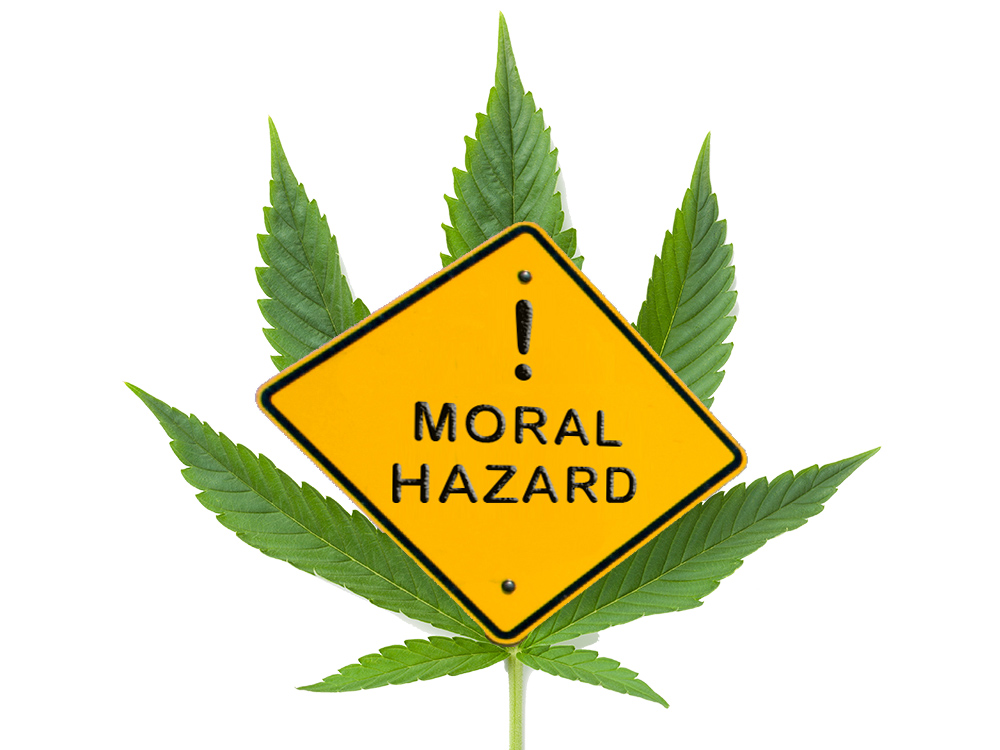Not too long ago, governments used to prohibit behaviour that was bad for its citizenry. Gambling was one such activity; it is a practice in which those insufficiently aware of statistical probabilities are induced to lose money to those with a deeper knowledge of the odds — a sort of tax on the stupid. For complicated reasons, certain types of gambling were allowed — pari-mutuel betting on horse races, owning a ticket on the Irish Sweepstakes — but no one could open a casino, sell lottery tickets, operate a betting parlor, or run a numbers racket. Governments knew that the poor were the primary victims and that a certain proportion of gamblers would ruin their lives and those of their families by becoming addicted. Then behold: the 1976 Montreal Olympics was expected to incur an astonishing debt and the regime of Trudeau the Elder changed laws to allow a lottery to pay off the money owed. Provinces followed suit and governments were soon as addicted to gambling revenue (over $13 B a year) as any poor slob spending his children’s milk money on the horses or the senior citizens hunched over the VLTs with their stacks of quarters. And welcome to “the range of serious personal and social harms such as depression and suicide, bankruptcy, family breakup, domestic abuse, assault, fraud, theft, and even homelessness” which the Canada Safety Council associates with problem gambling.
Not too long ago, the government was against the production and consumption of the by-products of plants of the genus cannabis. Despite this prohibition, many Canadians indulged in marijuana and hashish, so much so that our present federal government decided that what society really needed was freer access to another psychotropic substance known to cause brain damage, fetal malformities, and lung infection. We would all benefit, we were assured, from taxing the dope, freeing up police resources, and increased safety of the product. I do not have to inform the adults among my readers that, instead, the obvious happened: the black market continues and still manages to undercut the cost of government-sanctioned weed, revenues are not materializing, the police seem to be no less busy, and a new variety of impaired driver has hit the streets. Colorado, where the stuff has been legal for 5 years, reports an increase in organized crime, traffic fatalities rising, and accelerating rates of hospitalization.
Not too long ago, the government frowned on citizens injecting themselves with, snorting, smoking, or inhaling a wide variety of mind-altering drugs, substances that produced temporary pleasure and longer-term brain and body decay and death. “Junkies”, the rather cruel name for addicts, colonized whole sections of inner cities, producing a rich street life marked by piles of feces, puddles of urine, prone bodies, and a plethora of used needles decorating the urban landscape. Well-meaning activists hoped to aid those afflicted by providing safe-injection sites, or “supervised consumption centres,” where in a judgement-free atmosphere addicts could shoot up with free needles, sterile water, and alcohol wipes, and be close to (but not bothered by) social workers who could, perhaps, move them to a healthier lifestyle. In return, society would be rid of the sight of public consumption and enjoy used-needle-free sidewalks and parks. Proponents claim success; local residents remain unimpressed, pointing to the increase of discarded needles and the presence of less-than-desirable folk drawn to the injection sites.
The opioid crisis with its explosion of overdose deaths has prompted more calls to aid addicts by decriminalizing their use of dangerous drugs. And by speaking nicely about them — the federal government as part of its “compassionate, collaborative, comprehensive and evidence-based” approach to the problem urges citizens to help by “listening with compassion and without judgement, so a person who uses drugs feels heard and understood; speaking up when someone is being treated disrespectfully because of their substance use, and being kind with the words you use. Words matter. Use people first language.”
I must demur from this Hug-a-Junkie stance. Not because I am a particularly unsympathetic person, but because public policy is heading in a dangerous direction. Here is an iron law of human behaviour, as true 4,000 years ago in the shadows of the Great Pyramid as it is in the back alleys of today’s Vancouver: what you subsidize you get more of. You do not discourage bad behaviour by making it easier and more pleasant to engage in it. You do not wean addicts off speed by speaking of meth-heads in a kindlier fashion any more than you reduce sexual assault by providing rapists with condoms, or discouraging burglary by giving robbers the Boy’s Guide to Rich People’s Houses Without Alarms.
Moral Hazard is the concept, derived from economics, which states that individuals have incentives to act in certain ways when the cost of bad-decision making is borne by others. The current harm reduction attitude may well reduce the number of drug-users from dying of overdoses, but it will not reduce the number of abusers or the criminals who thrive off their addiction. We do not discourage dangerous behaviour by finding nicer words to describe it.



